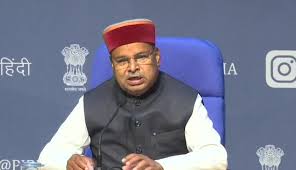NEW DELHI: The Cabinet Committee on Economic Affairs chaired by Prime Minister Narendra Modi on Wednesday approved changes in the Centrally Sponsored Scheme ‘Post Matric Scholarship to students belonging to Scheduled Castes (PMS-SC)’.
This will benefit more than four crore SCs students in the next five years and enable them to successfully pursue their higher education, sources said.
It is seen as Modi government’s major outreach to the socially and economically poor sections of society.
“This is a major and transformatory changes which will have far reaching effect in uplifting the students among the poorest SCs families,” Union Social Justice Minister Thaawar Chand Gehlot said.
“The Union government is committed to give further impetus to this effort so that the higher education of SCs would reach up to the national standards within the five year period.”
The Cabinet gave approval to a total investment of Rs 59,048 crore of which Union government would spend Rs.35,534 crore (60 per cent) and the balance would be spent by the state governments.
This replaces the existing ‘committed liability’ system and brings greater involvement of the Centre in the scheme.
The PMS-SC allows students to pursue any post matric course starting from standard 11th and onwards, with the government meeting the cost of education.
It is estimated that 1.36 crore such poorest students, who are currently not continuing their education beyond 10th standards would be brought into the higher education system in the next five years.
A salient feature of the scheme is that starting from 2021-22 the central share (60%) under it would be released on DBT mode directly into the bank accounts of students.
The amount will be deposited from accounts of Reserve Bank of India (RBI) to those of the benefeciaries as “per fixed time schedule”, after ensuring that the concerned state government has released their share.
Monitoring mechanism will be further strengthened through conduct of social audits, annual third party evaluation, and half-yearly self-audited reports from each institution.


